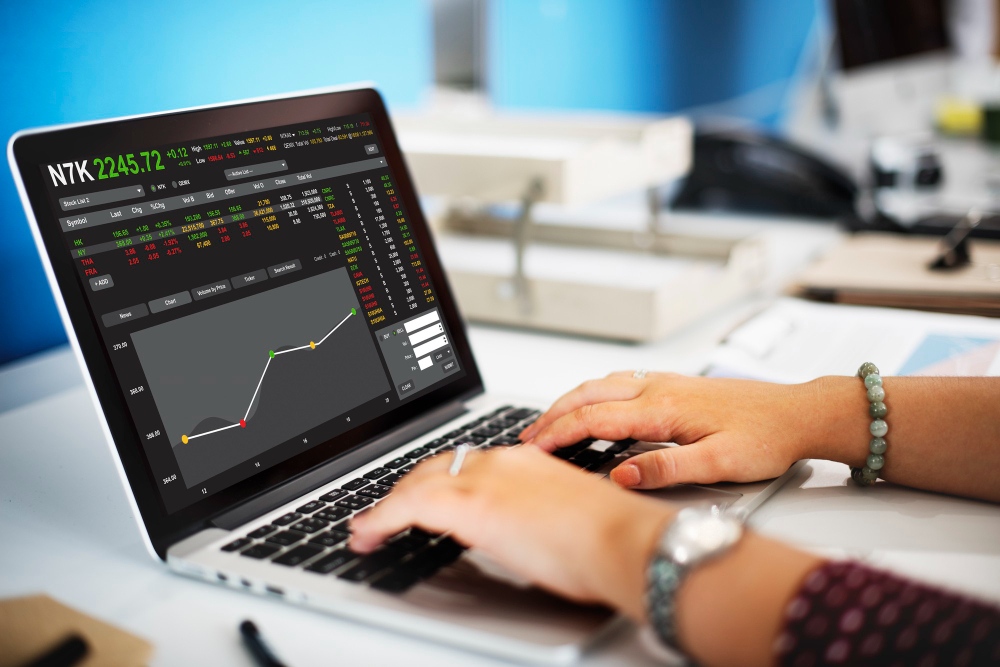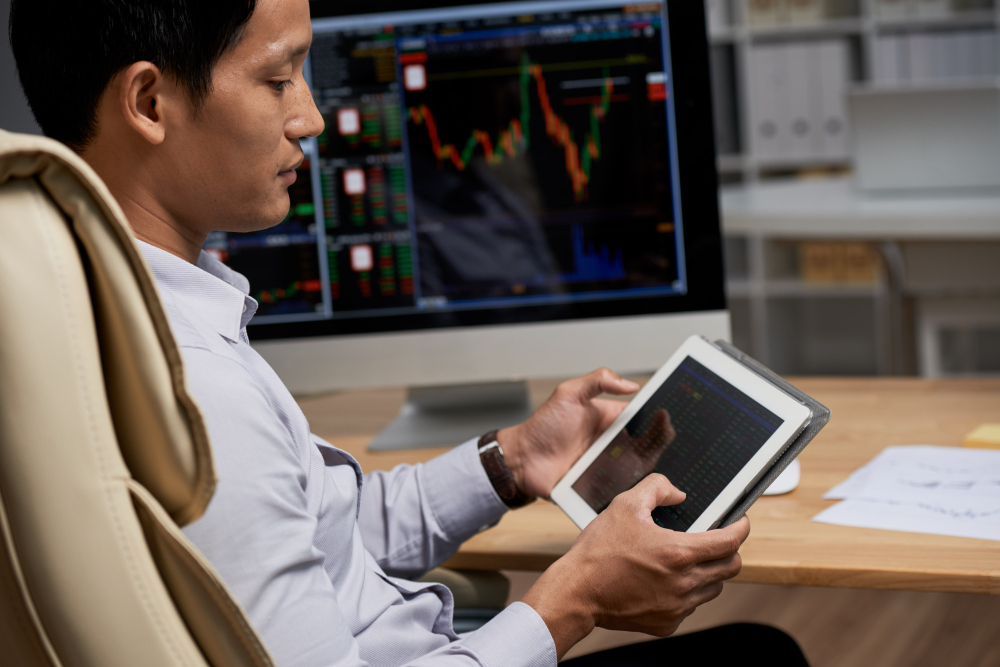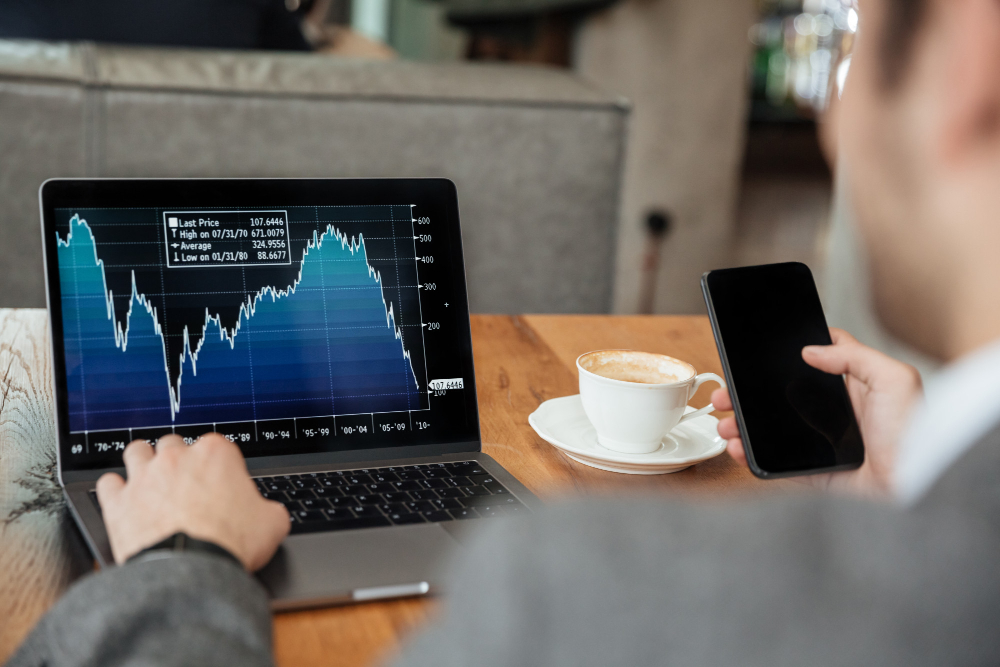In the high-stakes world of stock market trading, success hinges on more than just market knowledge—it’s about mental strength. Mark Douglas, a legendary trading mentor and my dear friend who personally mentored me, transformed my approach to the psychological game of long-term trading.
Mastering trading starts with conquering psychological barriers. Fear, greed, distrust, and disappointment can derail even the most promising trader. Emotions profoundly impact decision-making during market volatility.
Douglas stressed the importance of overcoming the need for certainty in an uncertain market. Many traders need help with accepting this unpredictability, but embracing it is key to long-term success. Here are several principles in stock market training to guide you.
1. Develop self-awareness and risk acceptance
Mark Douglas stresses self-awareness in trading. Here’s how to define your trading personality:
- Identify your trading style. Based on your temperament and lifestyle, determine if you’re suited for day trading, swing trading, or long-term positions.
- Align strategies with strengths. Leverage your analytical strengths, such as technical analysis or fundamental research, and choose strategies that capitalise on these skills.
- Strengthen your risk acceptance. The idea behind ‘risk acceptance’ and becoming a skillful trader is that risk is ACCEPTED. For example, you set the stop-loss level first as part of your trading system design. This alone requires the mental skill needed to accept that risk.
2. Creating a robust investment plan
Mark Douglas insists that a well-defined trading plan is key to discipline and consistency. Here’s what your plan should include.
- Clear objectives. Set specific, measurable goals for both profit targets and process-oriented metrics.
- Risk parameters. Establish strict rules for position sizing and maximum allowable losses per trade and day/week.
- Entry and exit criteria. Based on your strategy, define precise conditions for entering and exiting trades, whether using technical indicators, price action patterns, or fundamental criteria.
- Creating an edge. Increase your probability of success by identifying repeatable patterns or market inefficiencies you can exploit.
In his book, Trading in the Zone, Douglas wrote, “The consistency you seek is in your mind, not in the markets.” When you develop risk acceptance, you become a peaceful and emotionally resilient trader.
3. Master emotional discipline
Confidence and consistency are the bedrock of successful trading. Here’s how to cultivate these traits:
Developing routines and rituals for trading
Establishing daily routines and rituals is crucial for building confidence and consistency.
These habits create a structured environment, enabling you to focus on your strategies without emotional interference. This might include pre-market analysis, post-market reviews, and regular breaks to maintain your mental clarity.
Creating functional habits and eliminating dysfunctional ones
Functional habits support your trading goals, such as maintaining a trading journal, adhering to your trading plan, and regularly reviewing past trades to learn from mistakes.
Dysfunctional habits, like impulsive trading or deviating from your plan, should be recognised and eliminated. I always advocate for a disciplined approach, where functional habits replace dysfunctional ones, creating a sustainable path to success.
Maintaining confidence, consistency, and discipline amidst losses and wins
Trading inevitably involves both wins and losses. The key to long-term success lies in maintaining confidence, consistency, and discipline, regardless of short-term outcomes.
This means sticking to your trading plan even when faced with consecutive losses or riding high on a winning streak. Emotional resilience is crucial here, ensuring neither euphoria nor despair derails your strategy.
The prerequisite to confidence, consistency, and discipline: TRUST
According to Douglas, trust is the foundation upon which confidence, consistency, and discipline are built. Without trust, these qualities cannot flourish. Fear and distrust undermine your ability to trade effectively, leading to self-sabotage and erratic decision-making. To cultivate trust, focus on:
- Trust in the market. Understand that the market operates independently of your desires. Accept its inherent unpredictability and learn to navigate its movements without succumbing to fear. Acknowledge that it is the “endless stream of opportunities” (Mark Douglas) from which to profit.
- Trust in your investment plan. Develop a robust investment plan based on sound analysis and stick to it. Thorough research and back-testing can help you build confidence in your plan.
- Trust in yourself. Believe in your ability to execute your plan efficiently and flawlessly. This means having faith in your analytical skills, emotional resilience, and the discipline to follow through without self-sabotage.
You lay the groundwork for consistent and confident trading by embracing these three trusts. Trust fosters a sense of security and stability, allowing you to remain focused and disciplined, even in volatile markets.
When it comes to stock market training, it is not just about technical skills but also about cultivating mental strength and emotional intelligence. By developing routines, embracing functional habits, and fostering trust, you’ll position yourself for long-term success in the markets.
Managing expectations
Mark Douglas’s principles emphasise the importance of managing expectations in trading.
Here’s how to do it effectively:
Setting realistic goals
Set achievable, specific goals for your trading performance. Focus on both profit targets and process-oriented metrics to maintain a balanced perspective.
Avoiding outcome dependency
Outcome dependency—focusing too much on results—can magnify risks and negative outcomes. This creates distrust, leading to fear, hesitation, and inconsistency in your trading process.
The cycle of distrust
Distrust leads to lack of confidence, fear and hesitation, which breaks down your trading process. This manifests in:
- Chopping and changing your investment plan
- Ceasing to trade at the wrong times
- Losing big-picture perspective
- Blaming external factors, not taking responsibility
- Falling into self-pity
These behaviours result in worse outcomes and self-sabotage.
The role of trust
Success isn’t about having a perfect system with an edge—it’s about how you think about trading the market. Every system faces risks and losses, which can undermine trust if not managed properly.
Paradox of skilful traders
Skilful traders are trained to trust what may seem distrustful. You understand that:
- The market isn’t out to betray you
- Your system, despite losses, being wrong, missing out, and not fully capitalising on winners still has a verified edge that wins overall.
- Your execution capabilities are intact, even when you hesitate or face losses.
Overcoming dysfunctional thinking
You must avoid focusing on losses and perceived betrayal by the market. Instead, you should:
- Trust your system’s long-term edge.
- Accept that losses are part of trading.
- Maintain confidence in your ability to execute trades.
By managing expectations, avoiding outcome dependency, and cultivating trust, you can navigate market uncertainties with confidence and consistency. This approach minimises the risk of self-sabotage and enhances long-term success.
Be an unflappable trader in uncertain markets
Developing a robust approach is crucial to long-term success in the ever-volatile world of financial markets. As Mark Douglas emphasises, flourishing in both up and down market conditions hinges on your mindset and the systems you employ. Here are key takeaways to guide you:
Why you should have a robust mechanical system in place
A mechanical system provides the structure needed to navigate unpredictable market trends. It relies on predefined, objective criteria, ensuring that decisions are based on technical analysis and facts rather than emotions. This consistency allows you to execute trades confidently, even during significant price movements, fostering self-trust and discipline.
Why you must focus first and foremost on changing your trading mindset to attain the skill of consistency
Your mindset is the bedrock of consistent trading. To manage expectations and avoid outcome dependency, it’s essential to cultivate trust in yourself, your investment plan, and the stock market. This mental framework helps you maintain focus and discipline, avoiding the pitfalls of fear, hesitation, and losing money that leads to inconsistency and self-sabotage.
Importance of Community and a Coach
Transforming into an unflappable trader isn’t a solitary journey. Engaging with a community of like-minded swing traders, day traders, and position traders provides support, shared experiences, and valuable insights.
Moreover, working with a skilled coach can accelerate your learning curve, helping you acquire the necessary functional skills and reinforcing positive trading habits. The guidance and accountability from a coach ensure that you stay on track, especially during challenging market conditions.
At Share Wealth Systems, we understand the importance of combining a solid mechanical system with the right mindset and community support. Our Unflappable Trader Program is designed to help you achieve trading excellence through:
- A verified mechanical system: Our system, with over 8 years of live trading performance, provides the structured approach you need to trade confidently in any market condition, utilising various trading styles such as swing trading, position trading, and trend trading strategy.
- Mindset transformation: We offer stock market training based on the principles of Mark Douglas, focusing on cultivating the mental skills essential for consistent trading.
- Community and coaching: Our program includes access to a supportive community and expert coaching, ensuring you have the guidance and accountability needed to thrive. This community of successful traders will help you refine your entry and exit strategies, risk management techniques, and use of trend lines for technical and fundamental analysis.
Join us at Share Wealth Systems to become an unflappable trader. Embrace the tools, mindset, and community that will propel you to consistent success in the stock market. Our stock trading course is designed to equip you with the best trading strategies, whether you’re interested in day trading, swing trading, or position trading strategy.
For more information, visit Share Wealth Systems or schedule a call to discuss how you can transform your trading to unparalleled levels of skill and confidence.



